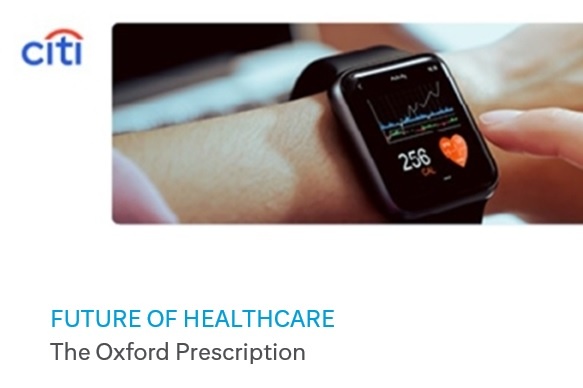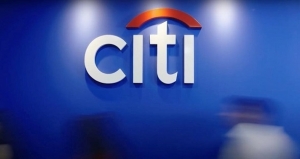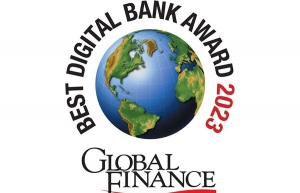Citi report focuses on future of healthcare
The strides made in global health and the consequent increase in human life expectancy stand as remarkable achievements of the past century.
 |
Today, individuals worldwide are experiencing nearly 30 additional years of life compared to their counterparts born in 1950, a testament to human resilience and progress, according to the fresh report.
This incredible advancement is attributed to the successful treatment of once-deadly infectious diseases like tuberculosis, alongside significant progress in combating cardiovascular diseases and various cancers, which collectively account for over 50 per cent of global deaths.
Furthermore, ongoing research and new drug discoveries are offering hope in diverse medical domains.
While celebrating these triumphs, it is crucial to acknowledge some concerning trends in the global healthcare system.
An ageing population is driving healthcare costs to potentially unsustainable levels, and medical expenses in many advanced economies have overburdened budgets in recent years.
Additionally, there is a growing concern over health disparities within society, heightened by the rise in antibiotic resistance and the increasing prevalence of obesity worldwide.
However, the private sector's focus on drug, therapy, and technology advancements represents a positive trend in healthcare innovation.
Citi's report, the “Oxford Prescription” takes a comprehensive approach by examining general population health, the integration of primary and secondary healthcare, and the transformative potential of data and new technologies in revolutionising healthcare delivery.
Collaborating with 17 esteemed professors from Oxford University's medical faculty, the report introduces a forward-thinking strategy to address medical issues proactively, emphasising early intervention over symptom management.
While the scientific community continues to refine tools like polygenic risk scoring and liquid biopsies, the Oxford Prescription is optimistic about the potential of these technologies to shape a healthier future.
The report advocates for a strategic reorganisation in healthcare delivery, drug development and digital integration, while stressing the importance of public health measures, especially in combating obesity.
“This special report highlights our commitment to helping society overcome challenges in accessing healthcare, aligning with one of the 17 United Nations Sustainable Development Goals (SDGs). As a global bank, Citi is dedicated to playing a leading role in advancing the SDGs. Through our core businesses, we actively contribute to several specific SDGs and targets, reflecting our commitment to making a positive impact,” said Ramachandran A.S., Citi Vietnam’s country officer and head of Banking.
Citi Vietnam led a significant M&A deal in the healthcare sector last year, signalling a positive transformation in the industry.
The deal was recognised as the best Vietnam M&A deal of the year at Asset Magazine's banking awards recently. The deal was the largest healthcare transaction in Vietnam to date.
 | Citi wins three Environmental Finance awards Citi was recognised by Environmental Finance magazine, a leading publication in the sustainable debt finance market, as lead manager of the year for corporate green bonds, lead manager of the year for corporate sustainability bonds and lead manager of the year for supranational, sub-sovereign and agency green bonds. |
 | HDBank releases 2024 Sustainable Development Report Ho Chi Minh City Development Joint Stock Commercial Bank (HDBank) published its 2024 Sustainable Development Report on May 23, the first of its kind in the banking sector. |
 | Global Finance names Citi as World’s Best Digital Bank 2023 Citi has been recognised as the World’s Best Digital Bank and Best Corporate or Institutional Digital Bank at Global Finance World’s Best Digital Bank Awards 2023. |
What the stars mean:
★ Poor ★ ★ Promising ★★★ Good ★★★★ Very good ★★★★★ Exceptional
 Tag:
Tag:
Related Contents
Latest News
More News
- Banks roll out God of Wealth Day promotions (February 26, 2026 | 17:10)
- VinaCapital launches Vietnam's first two strategic-beta ETFs (February 26, 2026 | 09:00)
- Banking sector targets double-digit growth (February 23, 2026 | 09:00)
- Private capital funds as cornerstone of IFC plans (February 20, 2026 | 14:38)
- Priorities for building credibility and momentum within Vietnamese IFCs (February 20, 2026 | 14:29)
- How Hong Kong can bridge critical financial centre gaps (February 20, 2026 | 14:22)
- All global experiences useful for Vietnam’s international financial hub (February 20, 2026 | 14:16)
- Raised ties reaffirm strategic trust (February 20, 2026 | 14:06)
- Sustained growth can translate into income gains (February 19, 2026 | 18:55)
- The vision to maintain a stable monetary policy (February 19, 2026 | 08:50)



























 Mobile Version
Mobile Version